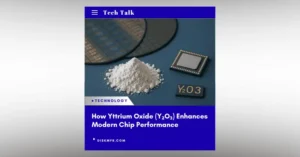01
Introduction
On October 24, Intel officially launched its next-generation desktop-level Core Ultra 200S series processors.
This new generation represents a significant change, effectively combining the strengths of the 12th through 14th generations of Core processors, and is theoretically more refined and complete. It features an updated architecture, removal of hyper-threading, and manufacturing by TSMC. Moreover, the 13th and 14th generation Core processors faced considerable issues, as various complex and sensitive factors came together.
Against this backdrop, the performance of the Core Ultra 200S series processors is particularly noteworthy. Prior to its release, rumors and leaks about the performance and benchmarks of this series were abundant, ranging from highly exaggerated to disappointing, leaving people unsure of what to expect.
This article will present a comparison of the gaming performance between the Core Ultra 9 285K and the previous flagship model, the Core i9-14900K, to provide interested readers with a reference. The moment of truth has arrived.
02
Parameter Comparison
The Core Ultra 9 285K, released on October 24, 2024, uses TSMC’s 3nm process, featuring 8 high-performance cores and 16 efficiency cores, with hyper-threading removed for a total of 24 cores and 24 threads. It has a base clock of 3.7GHz and a maximum clock of 5.7GHz. L2 cache is 40MB, with a smart cache of 36MB, a standard power consumption of 125W, and a maximum power consumption of 253W. The official suggested retail price is $589.
The Core i9-14900K, released on October 17, 2023, is built on a 10nm process, with 8 high-performance cores and 16 efficiency cores, totaling 32 threads. It has a base clock of 3.2GHz, a maximum clock of 5.6GHz, and a maximum turbo frequency of 6.0GHz. L2 cache is 32MB, smart cache is 36MB, standard power consumption is 125W, and maximum power consumption is 253W. The official suggested retail price is $589.
03
Test Platform Configuration
The main configurations are as follows:
The Core Ultra 9 285K is paired with the MSI MAG Z890 TOMAHAWK motherboard, while the Core i9-14900K is paired with the ASUS ROG Strix Z790-E Gaming motherboard. Other components are the same, with 32GB of DDR5 6000MHz memory, a GeForce RTX 4090 graphics card, two Samsung 970 EVO 1TB SSDs, and Windows 11 as the operating system.
04
Game Testing between Core Ultra 9 285K and i9 14900K
The performance of seven games was tested at 1080P resolution. In each of the images, the Core Ultra 9 285K platform is on the left, and the Core i9-14900K platform is on the right.
Game 1: Ghostwire: Tokyo
The Core Ultra 9 285K platform averaged 184 FPS with a minimum of 134 FPS, frame time of 4.9ms, CPU usage at 17%, power consumption at 64W, temperature at 45°C, memory usage at 11.7GB, GPU usage at 90%, and GPU power consumption at 260W.
The Core i9-14900K platform averaged 191 FPS with a minimum of 151 FPS, frame time of 4.9ms, CPU usage at 15%, power consumption at 85W, temperature at 50°C, memory usage at 10.7GB, GPU usage at 93%, and GPU power consumption at 263W.
Core Ultra 9 285K platform’s CPU usage was 2% higher and memory usage was 1GB higher, but with 3% lower GPU usage and 0.2GB less VRAM usage. It was 7 FPS lower on average, 17 FPS lower for minimum FPS, and had equal frame time, but ran 21W less power and was 5°C cooler, showing clear efficiency improvements.
Game 2: Red Dead Redemption 2
The Core Ultra 9 285K platform averaged 193 FPS with a minimum of 141 FPS, frame time of 4.4ms, CPU usage at 46%, power consumption at 97W, and temperature at 53°C.
The Core i9-14900K platform averaged 197 FPS with a minimum of 138 FPS, frame time of 4.3ms, CPU usage at 38%, power consumption at 135W, and temperature at 63°C.
Core Ultra 9 285K showed 8% higher CPU usage and comparable memory, GPU, and VRAM usage. It was 4 FPS lower in average FPS, 3 FPS higher in minimum FPS, with similar frame time. Power consumption was 38W lower, with a 10°C lower temperature.
Game 3: Cyberpunk 2077
The Core Ultra 9 285K averaged 121 FPS with a minimum of 82 FPS, frame time of 8.6ms, CPU usage at 62%, power consumption at 115W, and temperature at 58°C.
The Core i9-14900K averaged 137 FPS with a minimum of 97 FPS, frame time of 6.5ms, CPU usage at 54%, power consumption at 151W, and temperature at 67°C.
The Core Ultra 9 285K showed 8% higher CPU usage, comparable memory usage, 2% lower GPU usage, and equal VRAM usage. It was 16 FPS lower in average FPS and 15 FPS lower in minimum FPS but ran 36W lower in power and 9°C cooler.
Game 4: The Witcher 3
Core Ultra 9 285K averaged 102 FPS with a minimum of 49 FPS, frame time of 9.5ms, CPU usage at 43%, power consumption at 88W, and temperature at 53°C.
Core i9-14900K averaged 109 FPS with a minimum of 94 FPS, frame time of 9.3ms, CPU usage at 32%, power consumption at 123W, and temperature at 58°C.
The Core Ultra 9 285K had 11% higher CPU usage, similar memory usage, 9% higher GPU usage, and 0.6GB higher VRAM usage. It was 7 FPS lower in average FPS and significantly lower in minimum FPS, but with 35W lower power consumption and 5°C cooler operation.
Game 5: Star Wars Outlaws
Core Ultra 9 285K averaged 125 FPS with a minimum of 101 FPS, frame time of 7.8ms, CPU usage at 40%, power consumption at 94W, and temperature at 57°C.
Core i9-14900K averaged 139 FPS with a minimum of 109 FPS, frame time of 7.2ms, CPU usage at 46%, power consumption at 136W, and temperature at 63°C.
The Core Ultra 9 285K showed 6% lower CPU usage, 0.8GB lower memory usage, 9% lower GPU usage, and 0.8GB lower VRAM usage. It was 14 FPS lower on average and 8 FPS lower for minimum FPS, with similar frame time, and operated 42W less power and 6°C cooler.
Game 6: Hogwarts Legacy
Core Ultra 9 285K averaged 84 FPS with a minimum of 67 FPS, frame time of 11.6ms, CPU usage at 25%, power consumption at 72W, and temperature at 51°C.
Core i9-14900K averaged 87 FPS with a minimum of 71 FPS, frame time of 11.8ms, CPU usage at 16%, power consumption at 99W, and temperature at 53°C.
The Core Ultra 9 285K showed 9% higher CPU usage, 2.5GB lower memory usage, and similar GPU and VRAM usage. It was 3 FPS lower on average, 4 FPS lower for minimum FPS, with comparable frame time, and ran 27W lower power and 2°C cooler.
Game 7: Starfield
Core Ultra 9 285K averaged 150 FPS with a minimum of 113 FPS, frame time of 6.4ms, CPU usage at 72%, power consumption at 131W, and temperature at 60°C.
Core i9-14900K averaged 148 FPS with a minimum of 110 FPS, frame time of 7.1ms, CPU usage at 55%, power consumption at 171W, and temperature at 66°C.
The Core Ultra 9 285K showed 17% higher CPU usage, 1.4GB lower memory usage, with similar GPU and VRAM usage. It was 2 FPS higher in average FPS, 3 FPS higher in minimum FPS, with negligible frame time difference, but ran 40W lower power and 5°C cooler.
05
Comparative Conclusion
The results are clear: across most game tests, with GPU utilization remaining similar, the Core Ultra 9 285K’s major core frequencies were approximately 0.3GHz lower than those of the Core i9-14900K. Its overall CPU utilization was significantly higher, using more processing resources.
In general, the Core Ultra 9 285K platform’s gaming performance was slightly lower than that of the Core i9-14900K, but the gap was minimal—essentially on par. Achieving this level of performance without hyper-threading is already impressive. However, the Core Ultra 9 285K shows clear improvements in power efficiency and thermal control, consistently consuming several dozen watts less power and operating a few degrees cooler than its counterpart.
The final conclusion: compared to the Core i9-14900K, the Core Ultra 9 285K did not enhance gaming performance and showed a slight decline, reflecting a more stability-focused generation. It is certainly not the “best gaming processor” and cannot compete with the Ryzen 7 9800X3D.
06
Benchmark Comparison
For those interested in traditional single-core and multi-core benchmark comparisons between the Core Ultra 9 285K and the Core i9-14900K:
The Core Ultra 9 285K demonstrated a 4% higher single-core performance and approximately 10% higher multi-core performance, giving it an edge in benchmark scores.
Related:
- RX 9060 XT vs RX 7600: Discover the Gaming Boost
- GeForce RTX 5070 vs 4070: Performance Test Revealed
- Radeon RX 9070 XT vs RTX 4080: Gaming Showdown!
- GeForce RTX 5080 vs 5090: Performance Comparison Test
- Radeon RX 6700 XT Performance in 2025: Worth It?
- Radeon RX 6600 Gaming Test Results: Worth It in 2025?

Disclaimer:
- This channel does not make any representations or warranties regarding the availability, accuracy, timeliness, effectiveness, or completeness of any information posted. It hereby disclaims any liability or consequences arising from the use of the information.
- This channel is non-commercial and non-profit. The re-posted content does not signify endorsement of its views or responsibility for its authenticity. It does not intend to constitute any other guidance. This channel is not liable for any inaccuracies or errors in the re-posted or published information, directly or indirectly.
- Some data, materials, text, images, etc., used in this channel are sourced from the internet, and all reposts are duly credited to their sources. If you discover any work that infringes on your intellectual property rights or personal legal interests, please contact us, and we will promptly modify or remove it.








